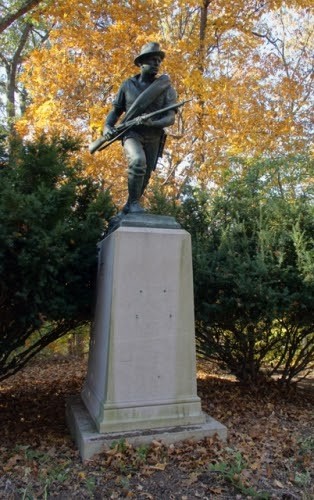Born and Raised
By Michael Natalino
One of my proudest factors is being a New Haven native. My family came to the United States to this city, all the way from Italy during the immigration surge of the late 19th Century. My grandmother, born Doreen Ann Trotta in 1949 and has spent her whole life here.
She was born and raised in Fair Haven (a subsidiary of the city), which she describes as a “very diverse neighborhood, made up mostly of immigrants who came to the United States to achieve the American Dream. The neighborhood consisted of people from Italy, Germany, Poland, and Portugal. There was no discrimination between nationalities and it felt like a family.” Her father was a self-taught mason who never finished school. So determined to learn the trade, he would exchange homemade wine for the education of blueprint reading from one of his peers. This hard work still inspires the rest of my family and I to prosper in whatever it is we love doing.
In the 60s, my grandmother moved to the Morris Cove area where my great grandfather built a home. Known as “The Cove” it was a more upscale neighborhood at the time, which consisted mostly of Italian-Americans. During this time, New Haven was home to many riots and experienced many pushes for Civil Rights. My grandmother recalls, “I remember people burning down stores and multiple riots. We also had a curfew set where no one could be out on the streets. The national guard remained in the Downtown area for weeks at a time. Southern’s campus was also home to many protests regarding the Vietnam War and women’s rights.” There would be protests going on at the same time as classes. My grandmother also explains how many men went to college during this time as a way to avoid having to go to war in Vietnam. This was a struggle that impacted our city and the entire country at this point in time.
Despite the amount of social change and challenges along the way, my grandmother graduated from Southern Connecticut State College in 1971 with a bachelor's degree and 1974 with a master's degree, both in education. Her first experience in the field was at Centerville School in Hamden, Connecticut as a permanent substitute for the fourth-grade class. In February of 1972, she received a full-time position as a kindergarten teacher at Bishop Woods School in New Haven, where she spent the next four years.
She adored her job and gave much credit to her college education experience. After getting married to my grandfather Bruce she would give birth to my mother Dina. Putting family first, she decided to take a break from her love of teaching. Five years later she decided it was time to return to the classroom where she felt most comfortable.
My grandmother was one of the first people to offer all-day kindergarten in the Annex area of New Haven. Prior to that, the closest all-day kindergarten program was in The Hill area of New Haven. She settled at Woodward Elementary School in the early 1990s, where she taught kindergarten and first grade. She explains how the schools were small at this time and felt more like a family. Woodward School was knocked down in 2005 due to the expansion of the Pearl Harbor Memorial Bridge. At this time, Quinnipiac Elementary School and Woodward School combined to make one K-8 school named Ross Woodward Elementary School. She recalls how it took some time before the two staff became united. The increase in population caused the climate of the school to become less personal. One on one interaction with students decreased and the curriculum became more rigid. My grandmother states, “It took away your freedom as a teacher. You had to focus on certain subjects at specific times and you could not divert from the scheduled curriculum. Everything was based on tests and objectives and there was little room left for originality and it took the fun out of teaching.”
Aside from the teaching aspect, I asked my grandmother how she felt the city has changed since her childhood. She emphasized how much the architecture of the city has changed over the years. The old New Haven Coliseum, where she used to watch hockey with my great grandfather, was demolished in 2007. The Coliseum held many concerts and sporting events. It was the entertainment center of New Haven. She recalls taking students on a field trip to watch the circus train come into town and see the animals. The Pearl Harbor Memorial Bridge, which connects Interstate 95 to Interstate 91 has also been completely rebuilt. She believes the city feels more commercialized, as any mom and pop neighborhood stores have been replaced with large supermarkets and chains. She also feels like Yale has helped in the development of the city with the addition of many restaurants and hotels. She acknowledges how the population has become much more diverse and united. Factors such as cultural growth and modern development have made the city more attractive to tourists. As a result, New Haven's economy appears to be increasing. My grandmother concluded our discussion by saying, “I have lived in New Haven my whole life. I love this city. I am very excited to see what the future holds both culturally and developmentally.”
The Laurel. Southern Connecticut State College. 1971.
Bibliography
Lesage, D. Personal Interview, Dec 8, 2019
Southern Connecticut State College. The Laurel, 1971. Digital .http://hdl.handle.net/11134/470002:48071, Buley Library
McLoughlin, Pam. “New Haven Coliseum Architect Left Town the Day It Was Imploded.” New Haven Register, New Haven Register, 12 Aug. 2018, www.nhregister.com/news/article/New-Haven-Coliseum-architect-left-town-the-day-it-13142340.php.




Comments
Post a Comment